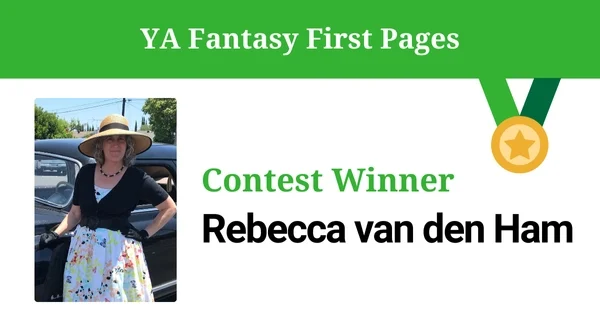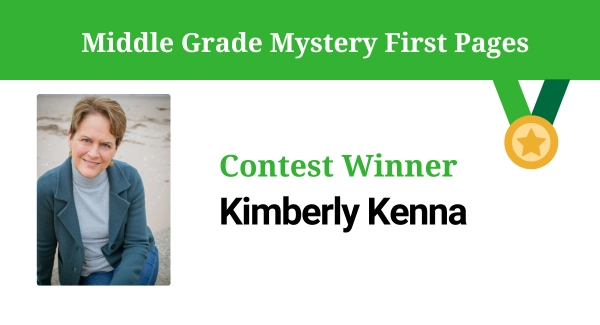
3rd Place: ONE KISS IS NOT ENOUGH

Kimberly Kenna Winning Entry:
17 Sherlock Lane
Are you our next writing contest winner?
Welcome to the Winners Circle where we celebrate the success of our ICL and IFW Contest winners. Today we’re celebrating Kimberly Kenna whose entry 17 Sherlock Lane came in Second Place in our Middle Grade Mystery First Pages Contest!
What contest was your winning entry submitted to?
I entered the Middle Grade Mystery First Pages Contest.
How many writing contests have you entered?
I’ve entered four writing contests over the last few years.
Please give the title of your entry and a short summary of the story.
The title of my book is 17 Sherlock Lane. Here is the hook:
To prove herself to her parents and avoid being sent to Bad Girls Boarding School, twelve-year-old Lola plans to restore the award-winning garden at her agoraphobic uncle’s neglected estate, but digging dirt turns up clues left by her dead aunt that plunge Lola into mysteries that have plagued 17 Sherlock Lane for over a century.
What inspired your winning entry?
During the pandemic, my husband and I hiked many CT state parks we’d never been to before. Gillette’s Castle State Park was one of them. The castle belonged to the actor, William Gillette, and that setting and the story of his life seemed like perfect seeds for a story. Secondary characters in my book are based on actual people in Gillette’s life—fun folks with plenty of quirks!
How has entering this contest helped your writing?
This particular contest made me focus really closely on how the first pages need to hook the reader, so I studied a lot of the beginnings of books I love and applied what I learned to my own book. Entering a contest with specific parameters and a deadline is a great practice!
How did the critique in the Winners’ Workshop help you?
The judges brought up a couple of points I hadn’t thought about, so I went back to my manuscript to see if I was as clear as I thought. (I wasn’t!) But it was also wonderful to hear how my writing fulfilled what they were looking for in those first pages. Knowing that my writing has brought joy to readers helps keep me going.
Are you a full-time writer? If not, what is your “day job”?
How long have you been writing?
I’ve been writing seriously for about seven years.
What will you do with your piece now that it’s been recognized?
I’m in the process of submitting my manuscript to publishers. But, that said, I do have trouble letting it go because I always find something new that needs to be fixed!
Any fun plans for the prize money?
I used the money to attend a writers’ conference. There’s always something new to learn.
What do you do when you’re feeling discouraged or blocked? Do you have any tips for your fellow writers?
During those tough times, I talk to my writer friends. They help me brainstorm my way through blocks and since they know how it feels to be discouraged in the writing and publishing process, they always manage to help me get back to where I need to be mentally and emotionally.
If you could go to the yard sale of any character in the history of children’s literature, whose would you go to, and what would you buy?
My favorite book as a child was the picture book, Pookie by Ivy Wallace. Pookie was a simple bunny who didn’t have many items to his name, but he loved eating honeysuckle sandwiches and buttercup biscuits, so I’d be looking for those as well as the map to the Great Dark Woods where the moon fairies danced and sang.
Anything you’d like to share about your IFW experience?
ICL’s newsletters are full of relevant writing and publishing information and I always learn something new from them. I’m so appreciative of the ICL contest offerings that inspire me to hone my craft as well as provide a fun and helpful critique session afterward.
Sign up for the Children’s Writer e-news here!
1000 N. West Street #1200, Wilmington, DE 19801
© 2024 Direct Learning Systems, Inc. All rights reserved.

1000 N. West Street #1200, Wilmington, DE 19801
© 2025 Direct Learning Systems, Inc. All rights reserved.

1000 N. West Street #1200, Wilmington, DE 19801
©2025 Direct Learning Systems, Inc. All rights reserved. Privacy Policy.